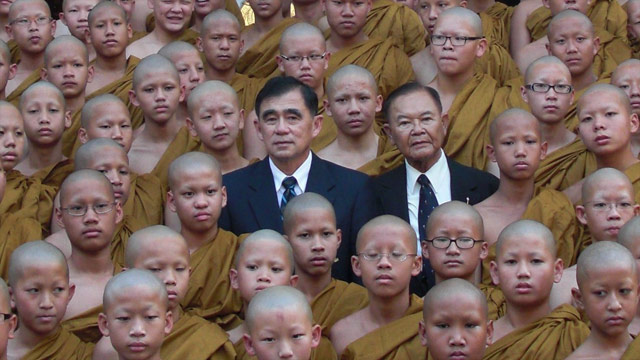Phnom Penh – The most common image of Cambodia is the land of ancient temples and budget travelers. There's now something else putting Cambodia on the map: foreign investors.
Cambodia's devastating recent history set the country back a generation. From 1975-78, the Communist Khmer Rouge killed intellectuals, destroyed the education system and pushed for an agrarian society that required families to be uprooted and separated.
By the end of the terror, between 1.7 million to 3 million Cambodians are estimated to have died at the hands of the Khmer Rouge. The Vietnamese occupation that followed and civil war between a weakened Khmer Rouge and the Cambodian government also stripped the country of stability for another two decades.
Today the country is politically stable with a democracy that's a constitutional monarchy. The children who survived the Khmer Rouge era are now parents. Half the country is now under the age of 25. Every year, a quarter million young Cambodians enter the job market and the government needs to create jobs for them, says Stephen Higgins, CEO of ANZ Cambodia.
"The Cambodian government is remarkably pro-business particularly coming from a Communist background. Any sector you can own 100%. There are banks here that are 100% foreign owned. Most manufacturing is 100% owned by foreigners."
Cambodia is one of the poorest countries in Asia with more than 80% of the population living in rural areas. Labor is cheap in Cambodia - cheaper than China, Vietnam or Thailand. Minimum wage is $61/month.
"My success story is labor. My labor force is very young. If there's a manual skill set or artistic aptitude I need, these folks are good at it. And I'm paying one-third of the cost of my Chinese counterparts," says Scott Huff, owner of Innovate International which makes a niche pet treat in Cambodia for the U.S. and European markets.
Brad Holes is an American who set up a stuffed animal factory in Phnom Penh. His company, "First & Main." employs 350 Cambodian workers and is already looking to expand into a bigger factory.
As one of three American manufacturers currently in Cambodia, Holes says he feels like a pioneer who has to roll with the challenges that arise in a developing country. For example, getting financing in Cambodia is not easy.
"I've talked to the major banks about credit lines. It's just not available," says Holes. "So we have to rely on private equity money and other funding – like my own personal funding or trade finance."
The road to success in Cambodia is filled with potholes that mirror some of the infrastructure. Power outages occur about once a week because power plants are isolated in various provinces and there's no national power grid. The cost of power is more expensive in Cambodia compared to other countries in the region.
After several years of delays, the Cambodian Stock Exchange opened this July, but there are no companies trading yet. The stock exchange says it plans to list its first two companies by the end of this year. They are state-owned enterprises, Phnom Penh Water Supply Authority and Telecom Cambodia.
No private company has come forward to list yet. Part of the problem is securities rules require three years of audited financial statements by one of three global accounting firms designated by the Cambodian Stock Exchange.
"When I look at our large local companies, I can't think of a single one that has audited financial statements at the moment," says Higgins.
Still, Cambodia holds appeal for the pioneer investor who wants to get in first and has the patience to ride out the bumps in the road.


No comments:
Post a Comment